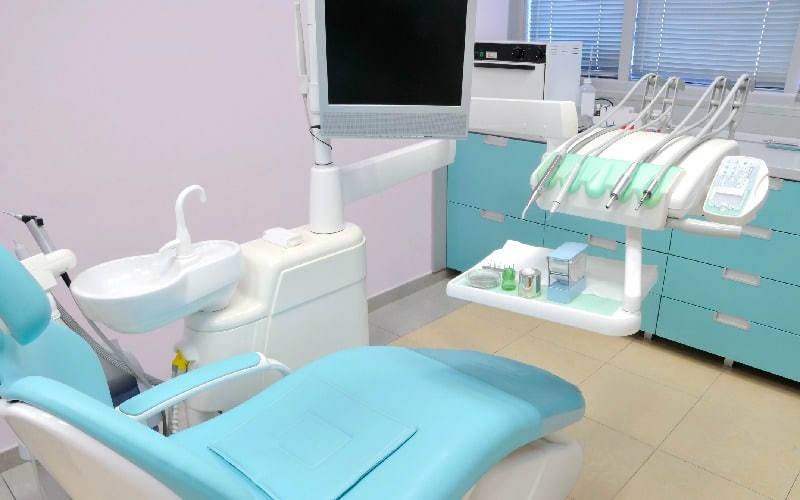Dental professionals invest significant time and effort in their dentistry skills, and are experts at what they do, but many have difficulties with the accounting aspects of their dental practice business, including the bookkeeping. However, effective dental bookkeeping is essential for financial stability, legal compliance, and informed decision-making.
Here are some important “dos” that successful dental practice owners follow, as well as some common mistakes, or “don’ts”
Table of Contents
ToggleDo Follow These Best Practices:
Keep a Good Chart of Accounts
A comprehensive chart of accounts creates a strong foundation for efficient dental bookkeeping. It provides a structured framework for categorizing financial transactions, and simplifies income and expense tracking.
It lets you keep all of your financial information in one place, and includes details on all of your finances, including cash on hand, accounts receivable and payable information, inventory, and equipment.
Tailor your chart of accounts to align with the specific needs of your dental practice. It may involve creating distinct categories for various income sources, such as dental procedures, consultations, and product sales.

Attention to detail is essential, while also striking the right balance so your chart of accounts captures all relevant financial information without becoming excessively complex. Consistency in naming conventions and account codes is critical, too, to prevent errors and make reconciliation easier.
Finally, be sure to review and update it regularly, to ensure it remains current.
Leverage Dental Accounting Software
Dental accounting software is tailored to the unique needs of dental practices and can offer many benefits.
It automates routine financial tasks, such as invoicing, payroll, and expense tracking, to save time and reduce errors. Additionally, it provides real-time insights into your practice’s financial health, enabling you to make informed decisions promptly.
The integration of dental practice management and accounting software streamlines operations for better efficiency, freeing you up even more to focus on your patients.
Streamline Bookkeeping Processes
Efficiency is a critical aspect of dental bookkeeping. Streamlining your bookkeeping processes can save time, reduce errors, and free up resources for other essential tasks.
As mentioned above, dental practice management software automates many processes, and streamlines operations, but there are other things you can do to improve efficiency further.
Establish a routine for data entry. Consistency in data entry prevents backlogs which can make the job more complicated, and ensures you always have up-to-date financial information at your disposal. Regularly reconciling your bank statements, too, can help detect discrepancies and errors at an early stage when they are easier to sort out.
Backup procedures for financial data are critical to protect against system failure and data loss.
Consider Outsourcing to a Dental Accounting Specialist

Recognizing the complexity of dental bookkeeping and the demands of running a practice, it’s worth considering outsourcing bookkeeping tasks to dental accounting specialists.
Dental accounting specialists have unique expertise on the challenges that dental practices face. This ensures accurate and compliant bookkeeping tailored to a practice’s needs.
Outsourcing also saves valuable time, so you can focus on patient care and strategic management of your practice.
Although there is an added cost, a specialized dental accountant is in fact cost-effective. By reducing errors, improving financial management, and letting you spend more time on treating patients, outsourcing can potentially save you money overall.
Outsourcing is scalable. As your practice grows, dental accounting specialists can adapt to your changing needs, for seamless and consistent financial support.
Don’t Make These Common Dental Bookkeeping Mistakes:
Mix or Confuse Personal and Business Expenses
Maintaining a clear line between personal and business finances is critical for good dental bookkeeping.
Mixing personal and business expenses can lead to tax complications and noncompliance. By keeping them separate, you can accurately claim deductions and adhere to tax regulations. If you have an audit, a well-defined separation of finances can streamline the process and protect your personal assets.
A clear separation of finances also helps keep a clearer view of finances. Separation of personal and business finances simplifies the analysis of your practice’s financial health to make more informed decisions easier.
Confuse Cash Flow and Profit
For good dental bookkeeping, differentiating between cash flow and profits is important. Clarifying the distinction can help your practice’s financial stability and decision-making processes.
Profits are the surplus revenue after deducting all expenses, including both cash and non-cash transactions. On the other hand, cash flow focuses solely on the movement of money in and out of your practice.

Cash flow ensures you have the necessary funds to cover expenses, invest in growth, and handle unexpected challenges. Without an adequate cash flow, even a profitable practice can face liquidity issues that hamper its sustainability. Maintaining an optimal cash flow is critical for the continued success of your dental practice; keeping a current cash flow statement will help.
Manage by Your Bank Statements
Always manage finances by your financials. While you should monitor your bank account statement, relying on it completely can be misleading. Bank account balances fluctuate because of outstanding invoices, pending expenses, investments, and other activities and factors. Relying solely on your bank account can give an inaccurate view of your financial state.
Focussing on financial reports and statements, including income statements, your profit and loss statement, balance sheets, and other such reports, provides a clearer impression. Assets, liabilities, and profitability are more accurately and meaningfully laid out to help with long-term planning and decision. Strategizing for enhanced financial stability and growth is simplified.
Forget to Track Depreciation
Dental equipment is highly expensive. It also depreciates over time. Failing to account for depreciation can lead to inaccurate financial records. A depreciation tracking system that accurately reflects the decreasing value of your equipment ensures your practice’s financial statements remain precise and compliant.
Close Your Books Before They’re Ready
At the end of a financial period, the books are closed, and the financial information in the reports is finalized. At this stage, no changes can be made. Books are closed to avoid data from various accounting periods mistakenly being incorporated into each other and creating discrepancies.
Your books need to be closed properly, after ensuring no changes are needed. Otherwise, it could report incorrect losses or profits. Be sure that journal entries are transferred to a general ledger account, as part of closing the books properly.
Need Help With Your Bookkeeping Process?
Dental Tax offers specialist bookkeeping services for dentists and dental practice owners, to help them with their business and personal finances. We can help you identify any financial gaps, develop strategies to reduce your expenses and streamline your bookkeeping – as well as provide a range of other dental accounting and tax planning services.
Adam has an MBA from the Richard Ivey School of Business in London and also holds a Chartered Investment Manager designation.
- 2024 Federal Budget Highlights - June 25, 2024
- Dental Practice Debt Management: A Comprehensive Guide - June 23, 2024
- Expanding Opportunities: The Impact of Increased Lifetime Capital Gains Exemptions for Dentists - May 28, 2024





